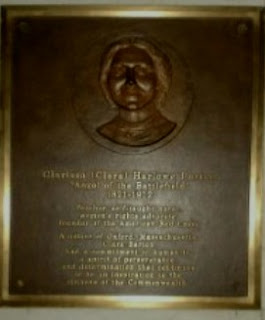Historical Profile: Fred T. Korematsu
Fred Toyosaburo Korematsu (January 30, 1919 –
March 30, 2005) was a Japanese American civil rights leader. Korematsu was convicted of evading internment
during World War II when Japanese Americans were forced into internment
camps. Korematsu is known for
petitioning against his internment. In Korematsu v. United States the U.S.
Supreme Court upheld the legality of the government’s order to bring Korematsu
and other Japanese Americans to internment camps. Executive Order 9066 signed by President
Franklin D. Roosevelt authorized the government to take people of Japanese
ancestry living on the West Coast from their homes and place them into internment
camps. Korematsu challenged this order
and eventually his case was brought before the Supreme Court. Years after the conclusion of World War II,
the U.S. government acknowledged the injustice of interning Japanese Americans.
In 1976, President Gerald Ford signed a
proclamation officially terminating Executive Order 9066. Ford said: “We now know what we should have
known then – not only was that evacuation wrong but Japanese-Americans were and
are loyal Americans. On the battlefield
and at home the names of Japanese-Americans have been and continue to be
written in history for the sacrifices and the contributions they have made to
the well-being and to the security of this, our common Nation.”
In 1980, President Jimmy Carter commented on the
causes of the Japanese internment camps saying: “race prejudice, war hysteria,
and a failure of political leadership.”
In 1988, President Ronald Reagan signed the
Civil Liberties Act which provided $20,000 to every surviving Japanese
internment camp detainee. The payment
totaled $1.2 billion.
In 1998, when awarding Korematsu the Presidential
Medal of Freedom, President Bill Clinton said: “In the long history of our
country’s constant search for justice, some names of ordinary citizens stand
for millions of souls: Plessy, Brown, Parks… to that distinguished list, today
we add the name of Fred Korematsu.”
On November 10, 1983, while testifying at the
U.S. District Court in San Francisco, California, Korematsu said: “I would like
to see the government admit that they were wrong and do something about it so
this will never happen again to any American citizen of any race, creed, or
color. If anyone should do any
pardoning, I should be the one pardoning the government for what they did to
the Japanese-American people.”
Korematsu’s legacy for pursuing justice and fairness
continues through several initiatives.
* The Fred T. Korematsu Institute in San Francisco,
California was founded in 2009.
* On September 23, 2010, California Governor
Arnold Schwarzenegger signed into law legislation that designates January 30th
of every year as the Fred Korematsu Day of Civil Liberties and the Constitution
in the state of California.
* Korematsu was the first Asian American to be
featured in “The Struggle for Justice” – a permanent exhibition at the
Smithsonian’s National Portrait Gallery.
* Of Civil
Wrongs and Rights: The Fred Korematsu Story is an Emmy Award winning movie
about Korematsu.


Comments
Post a Comment